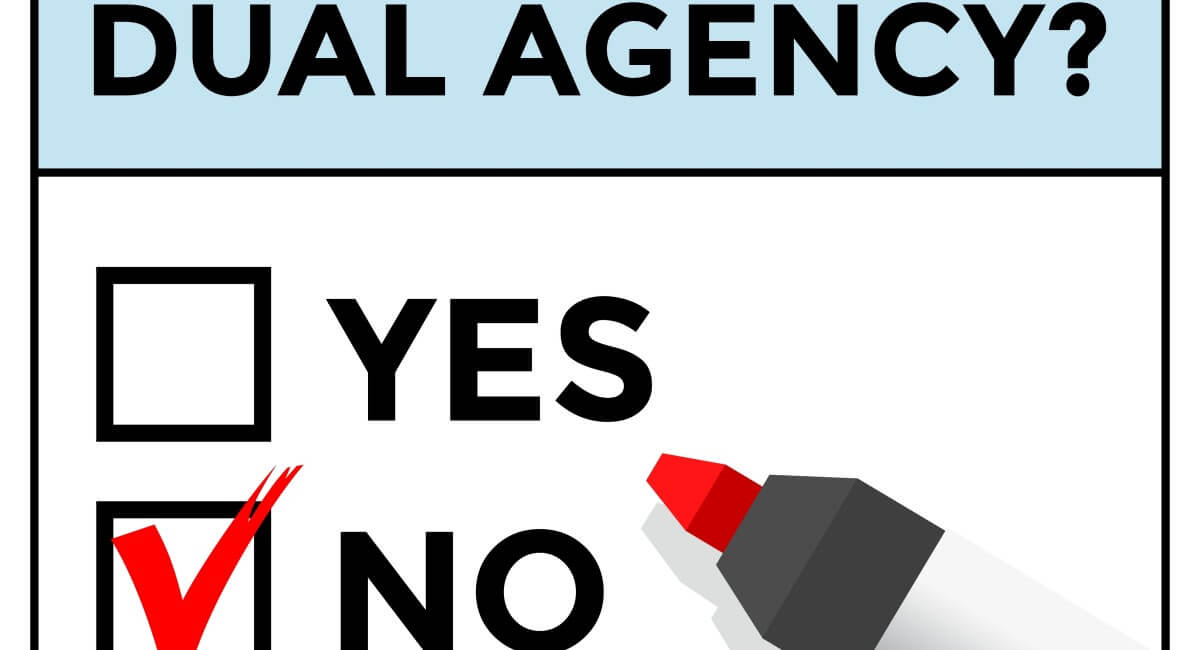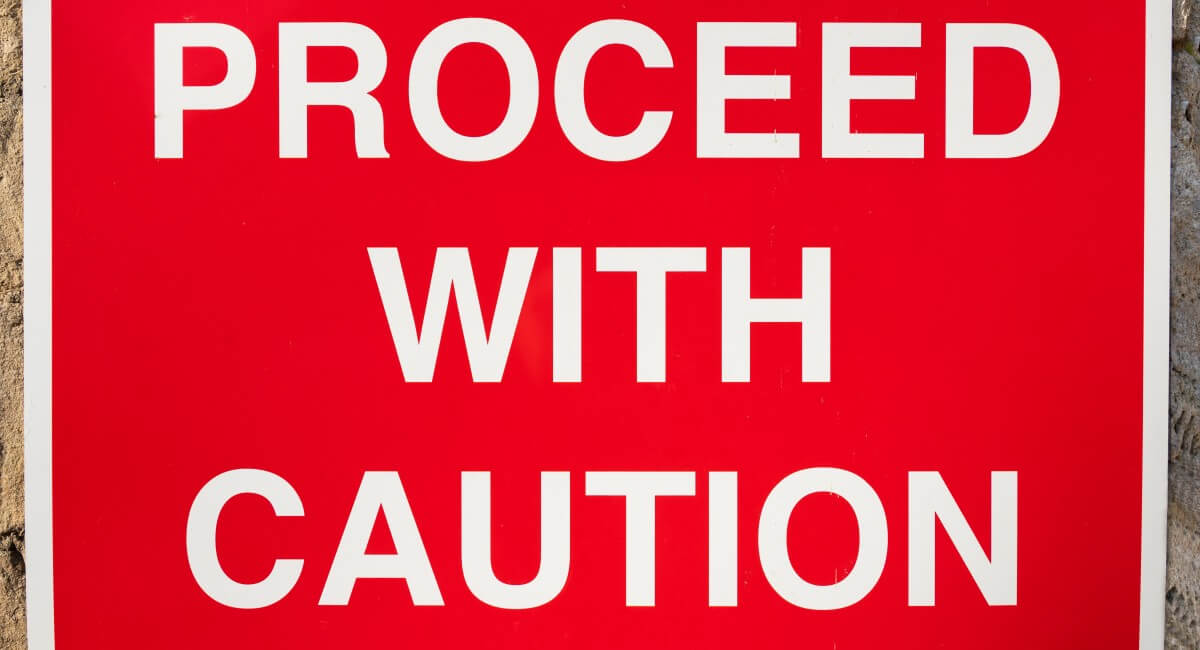Hiring a real estate agent you trust is one of the best things you can do when buying or selling a home, whether you’re selling or buying in Chino Hills, Chino, Eastvale or anywhere in Southern California. Your agent’s job is to guide you through the transaction while making sure you’re getting a fair deal. What happens if your agent also represents the other party?
As you prepare to buy or sell a home, you might run into questions about dual agencies. This arrangement can be risky, but it sometimes offers benefits to the buyer and seller. You should understand what a dual agency is, what the advantages and disadvantages are, and how you can protect your interests if you do pursue this arrangement.

What Is a Dual Agency?
In a typical real estate transaction, the seller and the buyer of the property are represented by different real estate agents. A dual agency occurs when one agent works for both parties.
A dual agency is similar to a designated agency, which is when the buyer and seller are represented by two agents who both work for the same brokerage. Both situations have their risks and should be approached carefully by buyers and sellers.

When Do Dual Agencies Happen?
A dual agency can happen when a buyer is interested in a property that also happens to be represented by their buying agent. While this may seem like a rare coincidence, it’s not entirely uncommon, especially after the recent rule changes regarding buyer agency.
Another common situation is when the buyer and seller know each other personally and already have an agreement to sell the property. For example, you might plan to sell your house to a family member or a neighbor. If you’ve already negotiated a deal with the buyer, you both could opt to hire one agent to facilitate the transaction.
Designated agencies are fairly common when a large brokerage dominates the real estate market in an area. Brokerages can employ hundreds or even thousands of agents, so it’s possible that the listing and buying agents don’t even know one another. You might also encounter a designated agency if you contact a listing agent as an unrepresented buyer and the listing agent refers you to a colleague at the same brokerage.

Are Dual Agencies Legal?
Some states have banned dual agencies because real estate agents can’t fully represent either party’s interests when they serve both the buyer and seller. Dual agencies are against the law in the following states:
- Alaska
- Colorado
- Florida
- Kansas
- Maryland
- Texas
- Vermont
- Wyoming
In states where dual agencies are legal, like here in California, buyers and sellers need to give written permission for the arrangement.

Commission in Dual Agencies
In a traditional real estate transaction, before the NAR settlement changes that went into place in August of 2024, the seller pays a commission of around 5% to 6% of the sale price of the home. This commission is split in some way between the listing agent’s and buying agent’s brokerages, and both agents receive a portion of the funds. Some brokerages still write their listings in this manner, however what the listing agent is willing to compensate the buyer’s agent can not be displayed in the MLS listings, this is where buyer’s agents find out important details about the listing. At BLDG Realty our listing contracts cover what we charge to handle the listing, and a fee that we charge should we find an unrepresented buyer through our marketing efforts. We prefer to have our seller clients choose if they wish to compensate the buyer’s agents based on the totality of each offer the amount or percentage that a buyer’s agent from another brokerage is requesting.
With a dual agency, or in the case we’re representing a previously unrepresented buyer, the commission is still paid by the seller. However, instead of the money being split between two brokerages, it’s all given to the single brokerage facilitating the transaction.
Benefits of a Dual Agency
There can be benefits to a dual agency when buying or selling a home. With fewer parties involved, you may find it easier to coordinate schedules and find time for meetings. There are also fewer people communicating with one another, which can streamline the process.
Sometimes, a dual agent will charge less commission because they don’t have to split it with another agent, as is the case with us.

Risks of a Dual Agency
While a dual agency can have benefits in certain situations, it can also be very risky. In many ways, buyers and sellers have opposing interests. Although both parties want the transaction to happen, the seller wants to get a higher price, and the buyer wants to pay less.
It’s incredibly difficult for an agent to remain neutral when representing both parties. Listing agents generally want to get a higher sale price so that they earn more commission. However, this is not in the best interest of the buyer.
Agents also have a responsibility to protect the privacy of both the buyer and the seller, which is difficult when they have direct contact with both parties. The agent could accidentally reveal information about the other party that may influence the sale.
For example, a dual agent might know that the seller has a strict deadline for moving. This information gives the buyer more negotiating power. If the agent reveals this to the buyer, though, they’ve broken confidentiality and betrayed the seller’s trust.
Dual Agency Red Flags
In most cases, it’s recommended that buyers and sellers work with separate agents. Hiring your own agent ensures that you have someone who’s fully committed to your own interests and who is able to fight to get you the best possible deal.
If you’re in the market as a buyer, be cautious if your agent approaches you about an off-market sale. While it is possible that your agent really was contacted by a seller who wants an off-market deal, it will be very difficult for them to represent your interests when they’re also working with the seller.
You should also be wary of listing agents who suggest a dual agency. You might encounter this if you don’t yet have a buying agent and you contact a listing agent directly for information about a home. If the listing agent suggests that they represent you in a dual agency, they’re probably more loyal to the seller’s interests than to yours.
When to Use a Dual Agent
You could consider a dual agency if you know and trust the other party involved in the transaction. This option might be especially beneficial if the agent agrees to reduce their commission.
If you’re buying or selling a home from a trusted friend or family member, you’ve probably already negotiated the terms of the deal. In this case, you could hire an agent for the sole purpose of facilitating the transaction. Both parties should understand and agree that the agent is only involved to make the sale happen and not to negotiate on either side’s behalf.
How We Do It
When we handle dual agency we make every effort to gather as many competitive offers from other brokerages and agents, aside from our marketing efforts we will in most cases send counter offers to get the highest and best offers possible. At that point we present our buyers with the sales price and terms it would take to make the deal happen. In most cases the listing side would benefit from a reduced buyer agency commission that we would charge them and this give our buyers an advantage. Our fiduciary duty is always to our listing client, however we treat all our dual agency buyers with honesty and fairness through the entire process.

Proceed With Caution With a Dual Agency
A dual agency can work out when both parties are fully aware of the risks and limitations of the situation. If you already have an agreement with the other party and don’t need your agent to negotiate for you, working with a dual agent could save you time and money. What’s most important is that the agent is fully transparent with both the buyer and the seller. In all other scenarios, it’s best to hire your own agent.

